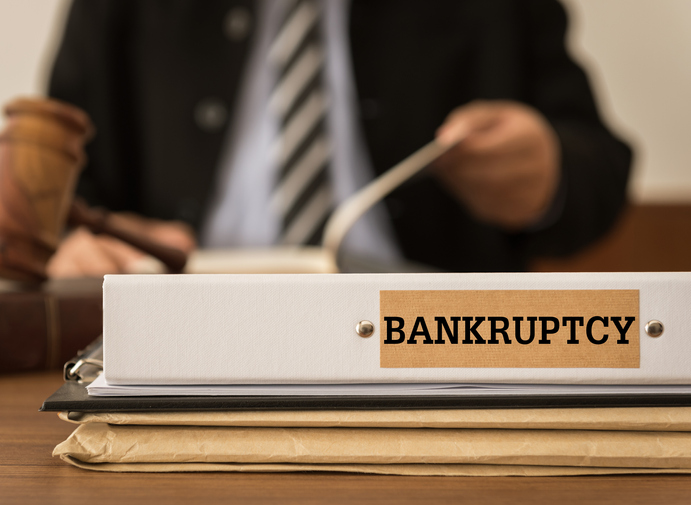In Chapter 13 bankruptcy cases, child support is treated with special consideration due to its priority status among debts. Here’s how child support is handled in the context of Chapter 13 bankruptcy:
Priority Debt:
- Child support is classified as a priority debt in Chapter 13 bankruptcy. This means it cannot be discharged and must be paid in full during the life of the bankruptcy repayment plan. Priority debts are paid before most other types of debts, ensuring that child support obligations are treated as a top priority.
Repayment Plan:
- When you file for Chapter 13 bankruptcy, you propose a repayment plan to the court, detailing how you will pay off your debts over a three- to five-year period. Your plan must include provisions for paying any outstanding child support arrears in full as part of the plan.
- For example, if you owe $5,000 in back child support, your Chapter 13 plan must allocate enough of your monthly payment to cover this debt in full by the end of your plan term, in addition to keeping up with your current child support obligations.
Ongoing Child Support Obligations:
- Chapter 13 bankruptcy does not pause or reduce your ongoing child support obligations. You must continue to make these payments directly to the child support recipient as they come due, outside of your bankruptcy repayment plan.
- Failure to stay current on your child support obligations during Chapter 13 can have serious consequences, including the possibility of your case being dismissed or converted to another chapter of bankruptcy.
Automatic Stay and Child Support Collection:
- While the automatic stay in Chapter 13 bankruptcy stops most creditors’ collection actions against you, it does not stop actions to collect child support. This means that wage garnishments for child support can continue, and you can still be obligated to comply with other legal actions taken to collect child support.
Dischargeability:
- Child support is not dischargeable in bankruptcy. This means that at the end of your Chapter 13 plan, any remaining debts for child support will still be owed and must be paid.
Legal Obligations and Proceedings:
- Filing for Chapter 13 bankruptcy requires you to provide proof that you are current on your domestic support obligations, such as child support, at the time of filing. Additionally, you must remain current on these obligations to receive a discharge at the end of your plan.
Child support plays a critical role in Chapter 13 bankruptcy cases. It is considered a priority debt that must be paid in full, and ongoing obligations must continue to be met outside the repayment plan. Chapter 13 can provide a structured way to catch up on child support arrears while protecting you from other creditors, but it requires careful adherence to both bankruptcy and family court obligations. Consulting with a bankruptcy attorney who has experience with Chapter 13 cases involving child support is crucial to navigate these complexities successfully.

If you’re seeking assistance or more information about filing for bankruptcy, several national resources can provide guidance, educational materials, and support throughout the process. Here are some reputable national bankruptcy help sources:
1. United States Courts
- Website: www.uscourts.gov
- Overview: The official website for the Federal Judiciary offers comprehensive information about the bankruptcy process, including explanations of different bankruptcy chapters, official forms, and a bankruptcy basics video series designed to help individuals understand the process.
2. National Association of Consumer Bankruptcy Attorneys (NACBA)
- Website: www.nacba.org
- Overview: NACBA is a national organization dedicated to protecting the rights of consumer debtors in bankruptcy. They provide resources for consumers, including a searchable directory of bankruptcy attorneys who are members of NACBA.
3. American Bankruptcy Institute (ABI)
- Website: www.abi.org
- Overview: ABI is a multi-disciplinary, non-partisan organization dedicated to research and education on matters related to insolvency. While ABI primarily serves professionals, it also offers resources and information beneficial to consumers considering bankruptcy.
4. Consumer Financial Protection Bureau (CFPB)
- Website: www.consumerfinance.gov
- Overview: The CFPB provides consumers with information about dealing with debt, including how to file for bankruptcy. Their website offers tools and resources to help manage debt and make informed financial decisions.
5. Legal Services Corporation (LSC)
- Website: www.lsc.gov
- Overview: LSC is a nonprofit organization that provides financial support for civil legal aid to low-income Americans. Their website can help you find legal aid organizations in your area that may offer free or low-cost bankruptcy assistance.
6. National Foundation for Credit Counseling (NFCC)
- Website: www.nfcc.org
- Overview: NFCC offers credit counseling and debt management plans. While not exclusively focused on bankruptcy, their certified counselors can provide advice on debt relief options, including when to consider bankruptcy.
7. Department of Justice U.S. Trustee Program
- Website: www.justice.gov/ust
- Overview: The U.S. Trustee Program is responsible for overseeing the administration of bankruptcy cases and private trustees. Their website includes information on the bankruptcy process and a list of approved credit counseling agencies and debtor education providers.
These national resources can provide valuable information and support for those considering bankruptcy. Whether you’re looking for detailed explanations of the bankruptcy process, seeking a qualified attorney, or need assistance with managing debt, these organizations can help guide you through your financial challenges. Remember, consulting with a bankruptcy attorney can also provide personalized advice tailored to your specific situation.


Get a Free Bankruptcy Case Evaluation